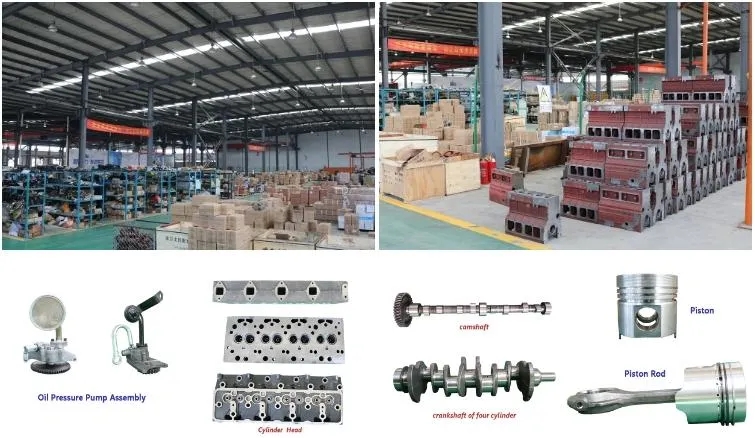Introduction
In the fast-paced world of telecommunications, maintaining uninterrupted connectivity is paramount. Whether it is for making phone calls, sending messages, browsing the internet, or accessing vital services, a reliable power source is essential to keep the network running smoothly. Diesel generators have emerged as a popular choice for backup power in the telecommunications industry due to their efficiency, reliability, and cost-effectiveness. This article explores the role of diesel generators in ensuring seamless communication in the telecommunications sector, examining their benefits, applications, and future prospects.
Overview of Telecommunications and Power Needs
Telecommunications is the backbone of modern society, enabling communication and data exchange across vast distances. From mobile phones to internet services, the demand for connectivity is ever-growing, requiring a robust infrastructure to support it. In this digital age, downtime is not an option, as even a few minutes of disruption can have far-reaching consequences. Power outages, whether due to natural disasters, equipment failures, or grid instability, can severely impact telecommunications networks, leading to service interruptions and loss of revenue.
To mitigate the risks associated with power failures, telecommunication companies invest in backup power solutions that can kick in when the main grid goes down. https://www.lkpowerplant.com/how-to-calculate-the-efficiency-of-a-diesel-generator/ have long been the go-to choice for providing reliable power during emergencies, offering a dependable source of energy to keep critical systems operational. These generators are designed to start automatically when the primary power source fails, ensuring a seamless transition and uninterrupted service delivery.
Benefits of Diesel Generators in Telecommunications
1. Reliability: One of the key advantages of diesel generators is their reliability. These machines are built to withstand long hours of operation and can deliver consistent power output even under heavy loads. This reliability is crucial in telecommunications, where any downtime can lead to customer dissatisfaction and financial losses.
2. Fuel Efficiency: Diesel generators are known for their fuel efficiency, making them a cost-effective choice for backup power. With proper maintenance and fuel management, diesel generators can provide hours of continuous operation without consuming excessive amounts of fuel. This is especially important in remote locations where refueling may be challenging.
3. Quick Start-up: In the event of a power outage, time is of the essence. Diesel generators are designed to start up quickly, ensuring that critical systems are back online within seconds. This rapid response time is essential in telecommunications, where every minute of downtime can have significant repercussions.
4. Longevity: Diesel generators are built to last, with many models capable of operating for thousands of hours without major overhauls. This longevity makes them a sound investment for telecommunication companies looking for a reliable backup power solution that can withstand the test of time.
Applications of Diesel Generators in Telecommunications
1. Mobile Base Stations: Mobile base stations are the lifeline of cellular networks, providing coverage and connectivity to users across vast areas. Diesel generators are commonly used to power these stations, ensuring that they remain operational even in remote locations or during emergencies.
2. Data Centers: Data centers house the servers and networking equipment that form the backbone of telecommunications networks. In the event of a power outage, diesel generators can kick in to keep these critical systems running, preventing data loss and service disruptions.
3. Remote Sites: Telecommunication infrastructure often extends to remote and off-grid locations where access to the main power grid is limited. Diesel generators serve as an essential power source for these sites, providing the energy needed to keep communication channels open.
4. Disaster Recovery: Natural disasters such as hurricanes, earthquakes, and floods can cause widespread power outages, putting telecommunications networks at risk. Diesel generators play a vital role in disaster recovery efforts, ensuring that communication lines remain open for emergency response and relief operations.
Future Prospects and Challenges
As the telecommunications industry continues to evolve, so too will the role of diesel generators in providing backup power. Advancements in generator technology, such as improved fuel efficiency, remote monitoring capabilities, and enhanced automation, will make diesel generators even more attractive for telecom operators looking to ensure uninterrupted service delivery.
However, diesel generators are not without their challenges. Environmental concerns, such as air pollution and carbon emissions, have prompted some telecom companies to explore alternative power sources, such as solar energy and battery storage. While these technologies offer clean and sustainable solutions, they may not always be practical or cost-effective, especially in remote or high-demand locations.
In conclusion, diesel generators play a crucial role in ensuring the reliability and resilience of telecommunications networks. Their robust design, fuel efficiency, and quick start-up capabilities make them well-suited for powering critical infrastructure during emergencies. While challenges exist in terms of environmental impact and sustainability, diesel generators remain a vital component of the telecommunications industry, providing the backup power needed to keep the world connected.
References:
1. IEEE Communications Society. (2018). Powering the Future of Telecommunications: How Diesel Generators Keep Us Connected. IEEE Communications Magazine, 56(7), 28-32.
2. Telecommunications Industry Association. (2020). Backup Power Solutions for Telecommunications Networks: A Comprehensive Guide. TIA White Paper Series.

3. U.S. Department of Energy. (2019). Diesel Generator Basics: A Beginner's Guide to Backup Power. DOE Publication No. DOE/EE-0357.
4. World Bank Group. (2017). Powering Connectivity: The Role of Diesel Generators in Telecommunications Infrastructure Development. World Bank Policy Research Working Paper No. 8426.
